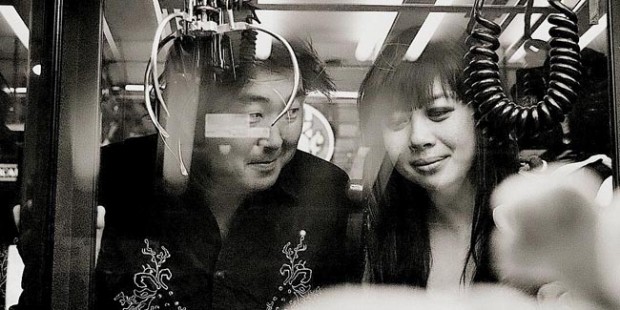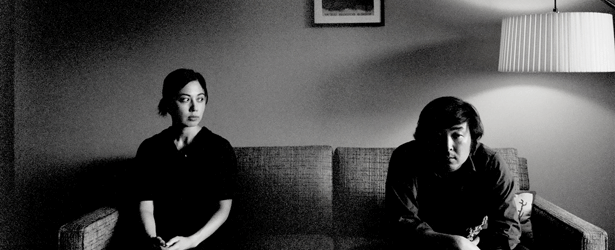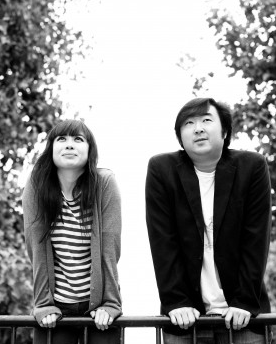I had missed Surrogate Valentine at SXSW 2011. However, I learn that Daylight Savings is a continuation of the story of Goh Nakamura (playing himself), an Asian American San Francisco indie musician whose life may or may not mirror his passion. Nakamura has contributed music to a few Hollywood films including the song Daylight Savings, as the film blurs a line between performance and reality.

For those not familiar with his work, the film does not require you to be. Shot digitally in crisp black and white by Bill Otto, we meet Nakamura in a club, performing for his girlfriend Rachel in Los Angeles and spending the week with her. He returns to San Francisco and continues to maintain this relationship until she calls it quits over Skype.
Seeking to mend his broken heart and escape from the work he’s been getting (his music is used in advertisements for both depression medication and cat food), he escapes to a film festival with his cousin Mike (Michael Aki) in a rural shore town, gets into a bar fight and becomes a guitarist with a broken hand. On the way back, they make a side trip to Vegas where he spends time with another musician playing herself, the lovely Yea-Ming Chen, who fixes a certain mojo that Goh’s lost.

Daylight Savings is a lovely study of the creative process; losing oneself in work is inherently problematic. I believe the band Hollerado when they say “you’ve got to lose love if you want to find love.” Hearts need to break to breed new work, new passions. Daylight Savings is as much about the creative process as it is a romantic comedy with lighter elements than this review would allude to. The story ends where it started, on a note of ambiguity, which isn’t as problematic as you might imagine, as this journey will, if anything, produce a great song (or even record).
The collaboration between filmmaker Dave Boyle with a brave performance by Goh Nakamura reveals what artists may choose to hide, the highly subjective process of drawing inspiration from your own life (or if anything, playing a version of yourself). Knowing this is the second of such feature (and looking forward to any future collaboration), this refreshing soulful film may in fact be theory for both Nakamura and Boyle and lucky for us, it’s delightful.

